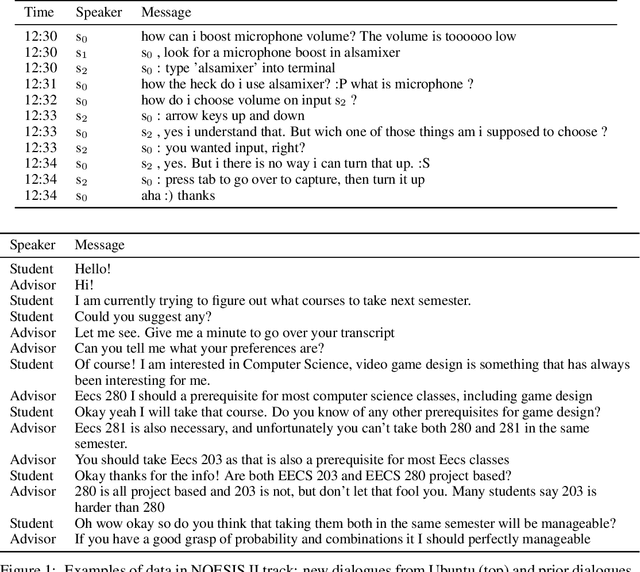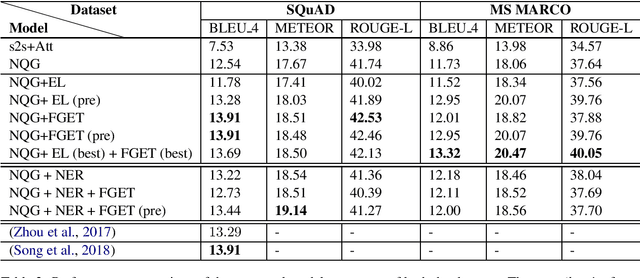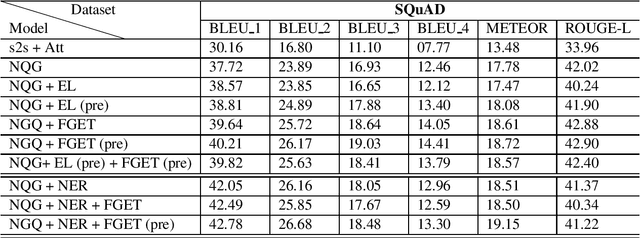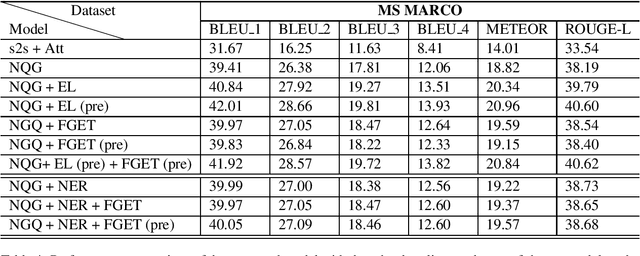Mahmoud Adada
MCPDial: A Minecraft Persona-driven Dialogue Dataset
Oct 29, 2024Abstract:We propose a novel approach that uses large language models (LLMs) to generate persona-driven conversations between Players and Non-Player Characters (NPC) in games. Showcasing the application of our methodology, we introduce the Minecraft Persona-driven Dialogue dataset (MCPDial). Starting with a small seed of expert-written conversations, we employ our method to generate hundreds of additional conversations. Each conversation in the dataset includes rich character descriptions of the player and NPC. The conversations are long, allowing for in-depth and extensive interactions between the player and NPC. MCPDial extends beyond basic conversations by incorporating canonical function calls (e.g. "Call find a resource on iron ore") between the utterances. Finally, we conduct a qualitative analysis of the dataset to assess its quality and characteristics.
The Eighth Dialog System Technology Challenge
Nov 14, 2019



Abstract:This paper introduces the Eighth Dialog System Technology Challenge. In line with recent challenges, the eighth edition focuses on applying end-to-end dialog technologies in a pragmatic way for multi-domain task-completion, noetic response selection, audio visual scene-aware dialog, and schema-guided dialog state tracking tasks. This paper describes the task definition, provided datasets, and evaluation set-up for each track. We also summarize the results of the submitted systems to highlight the overall trends of the state-of-the-art technologies for the tasks.
Improving Neural Question Generation using World Knowledge
Sep 10, 2019


Abstract:In this paper, we propose a method for incorporating world knowledge (linked entities and fine-grained entity types) into a neural question generation model. This world knowledge helps to encode additional information related to the entities present in the passage required to generate human-like questions. We evaluate our models on both SQuAD and MS MARCO to demonstrate the usefulness of the world knowledge features. The proposed world knowledge enriched question generation model is able to outperform the vanilla neural question generation model by 1.37 and 1.59 absolute BLEU 4 score on SQuAD and MS MARCO test dataset respectively.
TextWorld: A Learning Environment for Text-based Games
Jun 29, 2018



Abstract:We introduce TextWorld, a sandbox learning environment for the training and evaluation of RL agents on text-based games. TextWorld is a Python library that handles interactive play-through of text games, as well as backend functions like state tracking and reward assignment. It comes with a curated list of games whose features and challenges we have analyzed. More significantly, it enables users to handcraft or automatically generate new games. Its generative mechanisms give precise control over the difficulty, scope, and language of constructed games, and can be used to relax challenges inherent to commercial text games like partial observability and sparse rewards. By generating sets of varied but similar games, TextWorld can also be used to study generalization and transfer learning. We cast text-based games in the Reinforcement Learning formalism, use our framework to develop a set of benchmark games, and evaluate several baseline agents on this set and the curated list.
 Add to Chrome
Add to Chrome Add to Firefox
Add to Firefox Add to Edge
Add to Edge